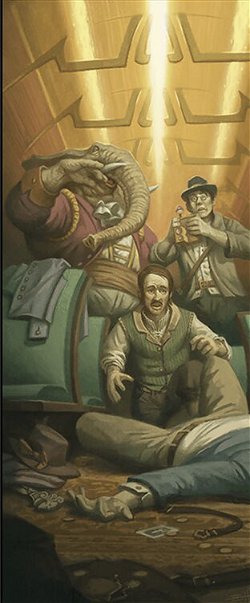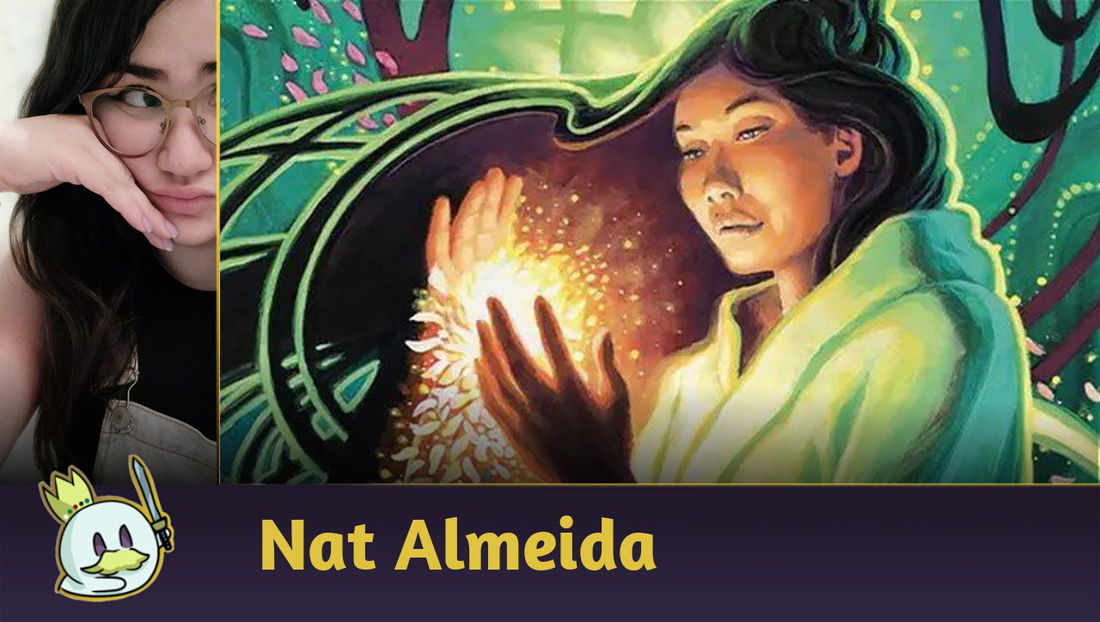The Bloomburrow Standard season has begun and the Metagame has already taken its first steps in defining which are the best decks, with archetypes for almost every type of player and potential new staples appearing in the lists in each Magic Online League or Challenge and Magic Arena event.
Among them, one that has been a bet by players since before the rotation has been Boros Convoke, whose majority of its core remained in the format while, on the other hand, no major additions came initially with Bloomburrow - but the shell of Gleeful Demolition with Novice Inspector and Knight-Errant of Eos is solid enough to create an archetype that demands respect from players when building their lists.
Ad
In this article, we analyze the current version of the archetype and present a Sideboard guide with the main matchups of the Standard Metagame!
The Decklist
This is the list I've been using on Magic Arena, and it features a set of Charming Scoundrel in the flex slots in the Maindeck.

Scoundrel was one of the cards mentioned as a replacement for Voldaren Epicure for Boros Convoke after the rotation, but Yotian Frontliner has been the main deck's maindeck, while the creature from Wilds of Eldraine is either a two-of or not even included in some lists, which prefer Warleader's Call.
Personally, this creature has done a bit of everything I need in Boros Convoke: it gives me an artifact to sacrifice, increases the power of a creature, filters our hand, and pays the cost of the ability of Warden of the Inner Sky, our main alternative game plan.
You could add two copies and include Warleader’s Call or any other card the metagame needs, but Boros Convoke is a very straightforward deck and I like to have consistency in everything it seeks to do.
Maindeck

Our enablers.
Novice Inspector and Charming Scoundrel put artifacts into play while also being creatures. They enable plays where Knight-Errant of Eos comes into play very early, and also interact with Warden of the Inner Sky for longer games.
Yotian Frontliner can be sacrificed with Gleeful Demolition and comes back in later turns for a turn, either for a second Demolition or to add to the lethal damage with Imodane’s Recruiter.
Resolute Reinforcements also interacts with Knight-Errant of Eos and Warden of the Inner Sky and its flexibility is important in some matchups and/or situations where we need to confuse the opponent’s blocking math.

Our payoffs.
Knight-Errant of Eos is the card that enabled Convoke as a viable archetype in Standard and Pioneer. It is commonly cast for free, sometimes on the second turn, often on the third - where it offers card advantage in addition to a 4/4 body on the board.
Warden of the Inner Sky interacts with creatures that put tokens into play to grow quickly while filtering the top. It is the “go big” in our game plan and, at times, becomes our main win condition.
Gleeful Demolition is the other reason Convoke exists and why we need so many artifacts. Three tokens for just one mana is all we want for more explosive turns with Knight-Errant of Eos or Imodane’s Recruiter.

Our pumps.
Imodane’s Recruiter is basically the card that enables our most lethal attacks. Giving a power boost to all your creatures does a lot of damage early in the game and/or if your opponent is caught off guard, and its Adventure ability, while uncommon to use, is an excellent mana sink in long games.
Ad
Case of the Gateway Express is our go-to tabletop interaction, and we can easily solve it on the list. It is, however, a common side out in games where we can't guarantee that its ETB will be relevant and/or that we'll solve its case.
Sanguine Evangelist also boosts the power of our creatures, offers a token when it comes into play, and can be found with Knight-Errant of Eos. It is a common side out in games against Aggro because it does relatively little for three mana in these games.

Our mana base is the best we have for any 
Possible land additions include Restless Bivouac as a cheap manland that we can activate in longer games, but coming into play tapped can have a big impact on the outcome of the whole game. Fountainport is another option that offers a bit more flexibility than Mirrex, but I haven't tested the card enough to come to a conclusion about it yet.
Sideboard

Our interaction.
Destroy Evil deals with big creatures like Aclazotz, Deepest Betrayal, Atraxa, Grand Unifier or Beza, the Bounding Spring, and also answers Temporary Lockdown, our biggest enemy in Standard today.
Lightning Helix is flexible and can be added in a few games as needed, but its main use is to hold Gruul Prowess or Mono Red Aggro for a turn or two - enough to turn the game in our favor.
Get Lost handles everything we need and can be used against both Midrange and Aggro. Its flexibility makes it essential to deal with permanents that hurt us.
Tectonic Hazard is a side-in against the mirror, which is very common in Magic Arena lately. It is the most flexible slot in the Sideboard, and we can replace it with whatever the Metagame demands.

Our “playing underhand won't work” package
Boros Convoke has a huge target on its back today and an absurd abundance of cards to respond to its initial plan: from cheap sweepers like Pest Control, Temporary Lockdown and Brotherhood’s End to decks that can trade one-for-one and hold the game until their bombs resolve, our plan tends to go wrong in Game 2.
That’s why cards like Urabrask’s Forge help maintain a consistent plan while we try to find gaps in the game, needing to use more removal and interact more with the game, counting on it and our other creatures to pull damage little by little each turn.
Boros Convoke’s biggest loss with the rotation was in the Sideboard, especially with Thalia, Guardian of Thraben, and the biggest problem we face with the deck today is finding ways to make it work without her. And Invasion of Gobakhan is the closest thing we have to counter our opponent's plans and/or delay sweepers and other cards that are getting in our way.
Ad
Finally, Loran of the Third Path is essential for dealing with enchantments and artifacts in a slot that we can find with Knight-Errant of Eos, but its draw ability also helps us keep our gas going in longer games.
Sideboard Guide
Golgari Midrange
IN

OUT

Domain Ramp
IN

OUT

Gruul Prowess
IN

OUT

Boros Convoke
IN

OUT

You might consider Get Lost if the opponent has Warleader’s Call. If you do so, take out two Charming Scoundrel.
Azorius Artifacts
IN

OUT

Wrapping Up
That’s all for today!
If you have any questions, feel free to leave a comment!
Thanks for reading!










— コメント0
最初にコメントする